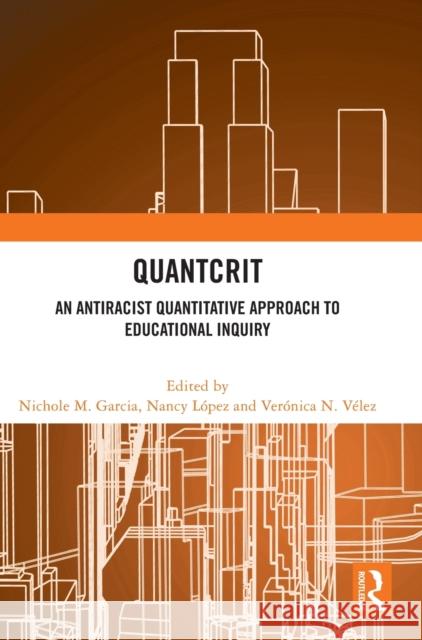QuantCrit: An Antiracist Quantitative Approach to Educational Inquiry » książka
QuantCrit: An Antiracist Quantitative Approach to Educational Inquiry
ISBN-13: 9781032462448 / Angielski / Twarda / 2023 / 126 str.
QuantCrit: An Antiracist Quantitative Approach to Educational Inquiry
ISBN-13: 9781032462448 / Angielski / Twarda / 2023 / 126 str.
(netto: 674,98 VAT: 5%)
Najniższa cena z 30 dni: 653,11
ok. 16-18 dni roboczych.
Darmowa dostawa!
Critical race theory (CRT) in education centers, examines and seeks to transform the relationship that undergirds race, racism, and power. This book reconsiders the possibilities of CRT applications to quantitative methodologies through ‘QuantCrit.’
Critical race theory (CRT) in education centers, examines and seeks to transform the relationship that undergirds race, racism, and power. CRT scholars have applied a critical race framework to advance research methodologies in the form of qualitative interventions. Informed by this work, this book reconsiders the possibilities of CRT applications to quantitative methodologies through ‘QuantCrit.’ This volume posits the question: How can quantitative methods, long critiqued for their inability to capture the nuance of everyday experience, support and further a critical race agenda in educational research? It provides a starting point for how QuantCrit principles are employed by interdisciplinary contributions in race and quantitative studies. The contributors to the book examine the legacy and genealogy of QuantCrit traditions across disciplines to uncover a rich lineage of methodological possibilities for disrupting racism in research. They argue that quantitative approaches cannot be adopted for racial justice aims without an ontological reckoning that considers historical, social, political, and economic power relations. Only then can quantitative approach be re-imagined and rectified. This book will be of interest to researchers and advanced students of Education, Sociology, Social Work, Politics, and Racial and Ethnic Studies. It was originally published as a special issue of the journal, Race Ethnicity and Education.











